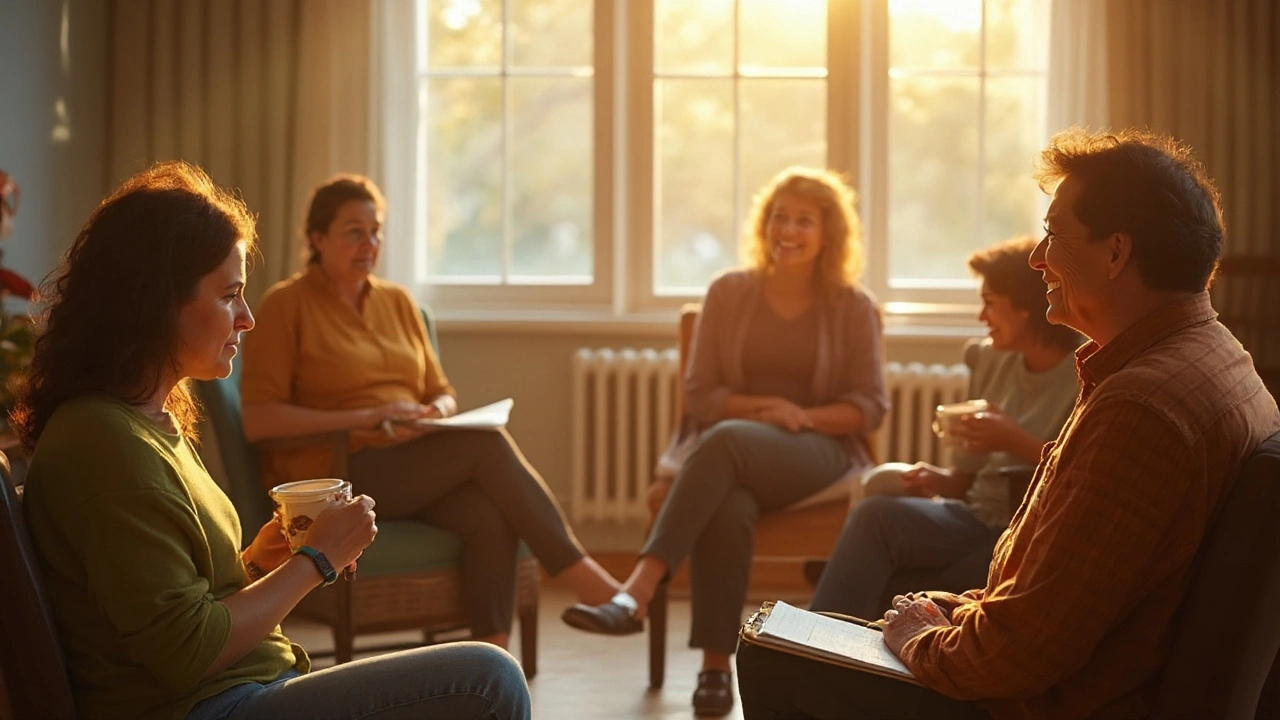Chronic Lymphocytic Leukemia Support Groups: Your Guide to Finding Help
If you or a loved one lives with chronic lymphocytic leukemia (CLL), a support group can feel like a lifeline. Talking to people who truly get what you’re dealing with reduces anxiety and gives you practical tips you won’t find in a textbook.
Why Join a CLL Support Group?
First, hearing real stories shows you that you’re not alone. Many members share how they manage side effects, schedule doctor visits, and stay positive. Second, groups often bring experts – nurses, pharmacists, or psychologists – who answer questions in plain language. Finally, the emotional boost from peers can improve mood, which in turn helps your body handle treatment better.
Types of Groups You Can Join
There are three main formats:
In‑person meetings: Hospitals, cancer charities, and community centres host regular gatherings. Look for CLL‑specific sessions at your local NHS trust or at a national organization like the Leukemia Research Fund.
Online forums: Websites such as HealthUnlocked, Patient.info, and dedicated Facebook groups let you post questions any time of day. Threads are searchable, so you can find advice on topics like managing fatigue or navigating insurance.
Hybrid webinars: Many charities run live video chats with guest speakers. You get the face‑to‑face feel without leaving home, and recordings are usually saved for later viewing.
Try a mix of formats to see what fits your schedule and comfort level.
How to Find a Group
Start with the big UK charities: CLL Society UK, Cancer Research UK, and Macmillan Cancer Support. Their websites have “Find a Support Group” tools that filter by location and disease type. You can also ask your haematology nurse – they often have a list of trusted groups.
If you prefer digital, type "CLL support forum" into a search engine and add your city for local options. Social media platforms let you filter groups by privacy settings, so you can join a closed group if you want a safe space.
What to Expect at Your First Meeting
Don’t worry about being perfect. Most groups begin with a quick intro round, then an open conversation. You can listen first and speak later, or ask a specific question right away. Bring a notebook if you like to jot down tips – many members share medication schedules, diet ideas, and exercise routines.
Tips for Getting the Most Out of a Group
1. Set a goal: maybe you want to learn about coping with hair loss or find local transport options. Having a purpose keeps you focused. 2. Respect privacy: what’s shared in the room stays in the room. This builds trust. 3. Be proactive: if you have useful experience, speak up. Others will appreciate a fresh perspective. 4. Follow up: after a meeting, email the organizer for resources or ask for a contact list if you want to stay in touch. 5. Keep an eye on your mental health. If a discussion feels overwhelming, take a break or talk to a counselor.
Support groups are not a replacement for medical advice, but they complement it by giving you the everyday tools to live with CLL. Whether you join a coffee‑shop circle in Manchester or a global Facebook page, the connection you make can make treatment feel less isolating.
Ready to try one? Pick a group that matches your comfort level, attend a session, and see how it feels. You might be surprised at how quickly a small community can become a big source of strength.

How Support Groups Help CLL Patients & Their Families
- Sep, 21 2025
- 11
Explore how support groups empower chronic lymphocytic leukemia patients and families with emotional, educational, and practical help, improving quality of life and treatment coping.
Categories
- Medication Information (111)
- Health and Wellness (52)
- Women's Health (6)
- Support Resources (5)
- Supplements (5)
- Pharmacy Reviews (5)
- Dermatology (4)
- Mental Health (4)
- Nutrition (3)
- Fitness and Wellness (3)
Archives
- February 2026 (10)
- January 2026 (27)
- December 2025 (30)
- November 2025 (24)
- October 2025 (29)
- September 2025 (14)
- August 2025 (2)
- July 2025 (7)
- June 2025 (2)
- May 2025 (3)
- April 2025 (4)
- March 2025 (3)
- online pharmacy
- dietary supplement
- medication safety
- health benefits
- side effects
- generic drugs
- treatment
- wellness
- optimal health
- diabetes management
- safe medication purchase
- online pharmacy Australia
- brand name drugs
- drug interactions
- authorized generics
- generic medications
- link
- women's health
- dietary supplements
- sleep
